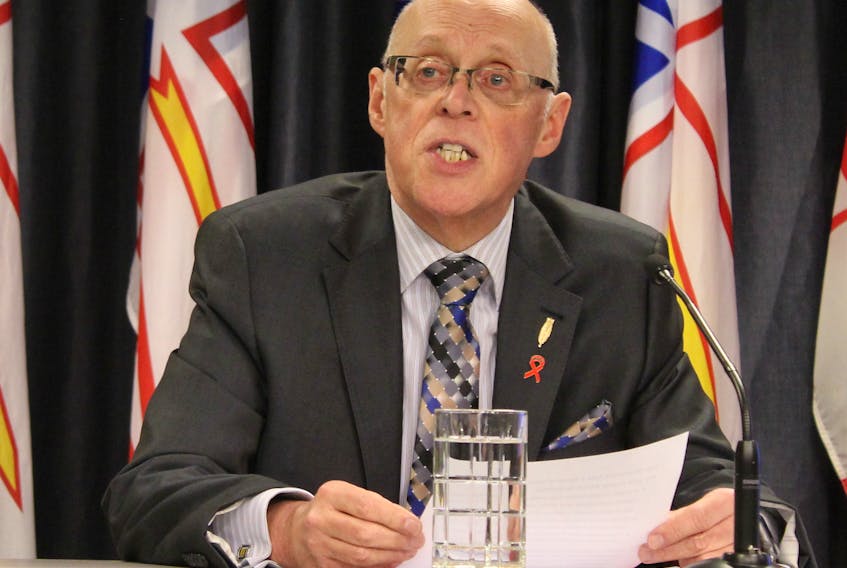Mandated vaccinations are not part of new health care legislation that provides a top-to-bottom rethinking of how government handles health care.
Health Minister John Haggie introduced the Protection and Promoting of Public Health Act on Tuesday, which aims to have health care considerations factored into all decisions in all departments of the government.
The legislation gives the government options for dealing with everything from full-scale pandemics to helping enforce bicycle helmets for the province. The “health in all policy” approach outlined in the act will require all government departments to think about health implications in any laws or policies they develop.
While the spirit of the act is to promote the better health of the public, one thing it cannot do is force people to get vaccinated. The previous legislation did leave room for a minister to make vaccination mandatory, but it was never enacted.
Haggie says the government cannot force people to get vaccinated, out of respect for individual freedoms enshrined in the Charter of Rights, regardless of how beneficial vaccines are to public health.
“I’m sure there are groups of people out there who would say we should have mandatory vaccination. I’m equally certain there are people out there who will say vaccination should be totally optional,” said Haggie.
The legislation gives power to regional health authorities to create policies that work toward making residents healthier – but the definitions are intentionally vague. Promoting public health could mean considerations for new water management systems or even allow for new regulations for the fast-food industry. In Quebec, similar legislation allowed the government to crack down on selling toys with children’s fast-food meals, for example.

The 55-page act is largely made up of legal language allowing for some previously unconstitutional health practices to take place. For example, if a person contracts a deadly, highly contagious disease, health authorities should have legal grounds to quarantine the person – even if it’s against their will. Those provisions will have to be tested in court, but Haggie says he believes any such extreme measures are protected under the new legislation. Haggie also granted assurances that the bar for any such measures is very high.
“If you look at what we have now, it would not pass a charter challenge. You could drive a bus through it,” said Haggie.
“That bit is all designed to balance the needs to society as a whole and its protection and the rights of the individual. It passes a reasonable legal test at the moment of protecting the individual’s rights and providing them with routes of appeal, mandatory review of orders and protection of the law.”
The act also creates distinct definitions for chronic or non-communicable diseases, such as cancer or heart disease.
Dr. Darrell Wade, president of the Newfoundland and Labrador Public Health Association, says it is the “most progressive piece of public health legislation in the country.”
“We were really pleased to see a focus on non-communicable diseases. The things that are killing residents of Newfoundland and Labardor are not the choleras of previous eras. It’s cancer, it’s heart disease, it’s diabetes,” Wade said.
“For the minister and government to really focus on some of these causes of disease is really important for us.”
The legislation is expected to come into law on Jan. 1.
Have your say
Want to wade into the debate? Write a letter to the editor and email it to [email protected] Be sure to include a name, address and daytime telephone number where the author can be contacted. Ideally, letters should be no more than 500 words, to a maximum of 700 words.









